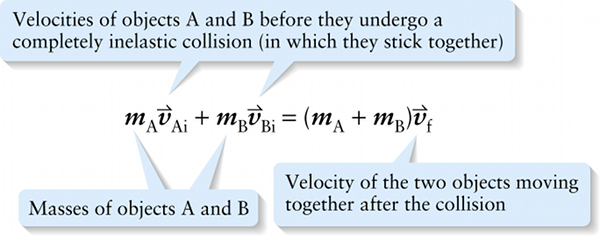Momentum conservation in a completely inelastic collision (7-18)
Question 1 of 3
Question
Velocities of objects A and B before they undergo a completely inelastic collision (in which they stick together)
{"title":"Velocities of objects A and B before they undergo a completely inelastic collision (in which they stick together)","description":"Correct!","type":"correct","color":"#99CCFF","code":"[{\"shape\":\"poly\",\"coords\":\"82,133\"},{\"shape\":\"rect\",\"coords\":\"30,1,49,24\"},{\"shape\":\"rect\",\"coords\":\"118,3,136,25\"}]"} {"title":"Velocity of the two objects moving together after the collision","description":"Wrong","type":"incorrect","color":"#ffcc00","code":"[{\"shape\":\"rect\",\"coords\":\"118,11,119,13\"},{\"shape\":\"rect\",\"coords\":\"279,2,297,24\"}]"} {"title":"Masses of objects A and B","description":"Incorrect","type":"incorrect","color":"#333300","code":"[{\"shape\":\"rect\",\"coords\":\"1,6,24,30\"},{\"shape\":\"rect\",\"coords\":\"86,4,113,26\"}]"}Review
When an object of mass mA and velocity →vAi undergoes an inelastic collision with a second object of mass mB and velocity →vBi, we can regard what remains after the collision as a single object of mass mA+mB. Momentum conservation then gives us an equation for the velocity →vf of this combined object just after the collision:
